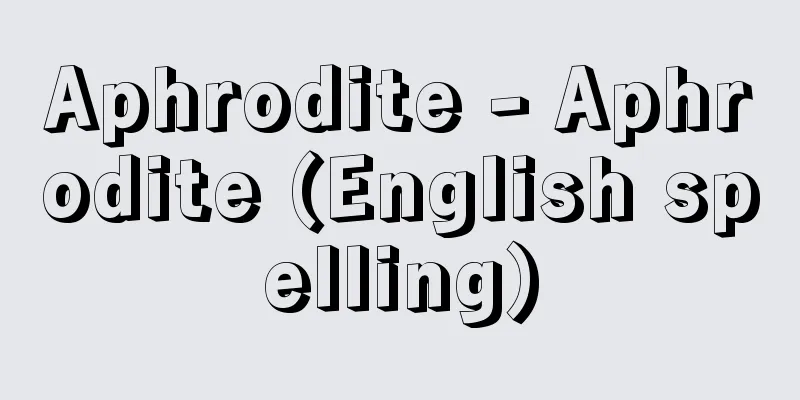Aphrodite - Aphrodite (English spelling)

|
In Greek mythology, she is the goddess of love, beauty, and fertility. She is considered to be the same as the later Roman god Venus. According to Homer, she was the daughter of Zeus and Dione and the mother of the god of love, Eros. However, according to Hesiod, she was born from the sea foam (afros) that gathered around the phallus of Uranus, which had been severed by Cronus. Aphrodite was born from a bubble and was carried by the west wind from Cythera to Cyprus, where she was dressed by the goddesses of the seasons and taken to the gods. Aphrodite married Hephaestus, the god of fire and blacksmithing, and secretly loved Ares, the god of war. In Homer's Iliad, she supports the Trojans, and in the Odyssey, she is caught in her husband's trap and disgraced in front of the gods. She gave birth to children such as Eros and Anteros with Ares. Aphrodite also had relationships with gods such as Dionysus, Hermes, and Poseidon, but she also had love affairs with humans such as Anchises and Adonis, and the hero Aeneas was born to the Trojan Anchises. After the fall of Troy, her son founded Rome, and the goddess was worshiped as the mother goddess of the Romans. Aphrodite's symbol is passion, the source of all living things, and therefore all feminine beauty and charm is embodied in the form of the goddess. [Masahiro Ogawa] [Reference] |Source: Shogakukan Encyclopedia Nipponica About Encyclopedia Nipponica Information | Legend |
|
ギリシア神話の愛と美と豊穣(ほうじょう)の女神。後のローマ神ビーナス(ウェヌス)と同一視されている。ホメロスによれば、ゼウスとディオネの娘であり、愛神エロスの母とされているが、ヘシオドスによれば、クロノスによって切断されたウラノスの男根の周りに集まった海の泡(アフロス)から誕生したとされている。 アフロディテは水泡から生まれると、西風に運ばれてキテラからキプロスに行き、そこで季節の女神たちに衣を着せられて神々のところへ導かれた。アフロディテは火と鍛冶(かじ)の神ヘファイストスを夫とし、軍神アレスとひそかに愛しあった。ホメロスの『イリアス』では、彼女はトロヤ方を援助し、『オデュッセイア』では、アレスとの密会をヘファイストスに見破られ、夫の網にかかって神々の前で醜態を演ずる。アレスとの間には、エロス、アンテロスなどの子が生まれた。またアフロディテは、ディオニソス、ヘルメス、ポセイドンなどの神々とも交わったが、アンキセス、アドニスら人間との恋愛話もあり、トロヤ人アンキセスとの間には英雄アイネイアスが誕生している。トロヤ陥落後この息子がローマを建設すると、女神はローマ人の母なる神として崇(あが)められた。生物誕生の源である愛欲がこのアフロディテの象徴であり、そのため女性の美と魅力のすべてが女神の姿に具現されている。 [小川正広] [参照項目] |出典 小学館 日本大百科全書(ニッポニカ)日本大百科全書(ニッポニカ)について 情報 | 凡例 |
<<: Afro‐music (English spelling)
Recommend
Manual reduction - Toshuseifuku (English spelling) manipulation
A technique for reducing dislocated joints or frac...
Yuuki Diogo - Yuuki Diogo
Around 1575 - 1636 (around Tensho 3 - Kan'ei 1...
Japanese style architecture
In contrast to the Daibutsu-style and Zen-shu-styl...
Gray mold - Gray mold
〘Noun〙 A disease that affects a wide variety of pl...
Partial equilibrium theory
The theory of equilibrium is a method of economic ...
Different current - Iryu
…In various Buddhist sects, this refers to a view...
effort shape
...The study of dance styles is therefore in the ...
Ust-Ilimsk Power Plant
…A tributary of the Yenisei River in Siberia, Rus...
Silk River
...The river originates in the Kinunuma Marshland...
Pirandello
Italian novelist and playwright. Influenced by nat...
Kaifuchu
… [Tadao Yokota] [Kofu Castle Town] A castle town...
Brown plants - brown plants
Same as brown algae. Source: About Shogakukan Digi...
Pile-built dwellings
A style of dwelling in which a large number of lo...
Silbermann, JH
…a family of German organ and keyboard instrument...
The Edict of Perpetual Peace (English: The Ewige Landfriede)
A law enacted by the Imperial Diet of Worms on Aug...









![Edosaki [town] - Edosaki](/upload/images/67cb0882c70de.webp)